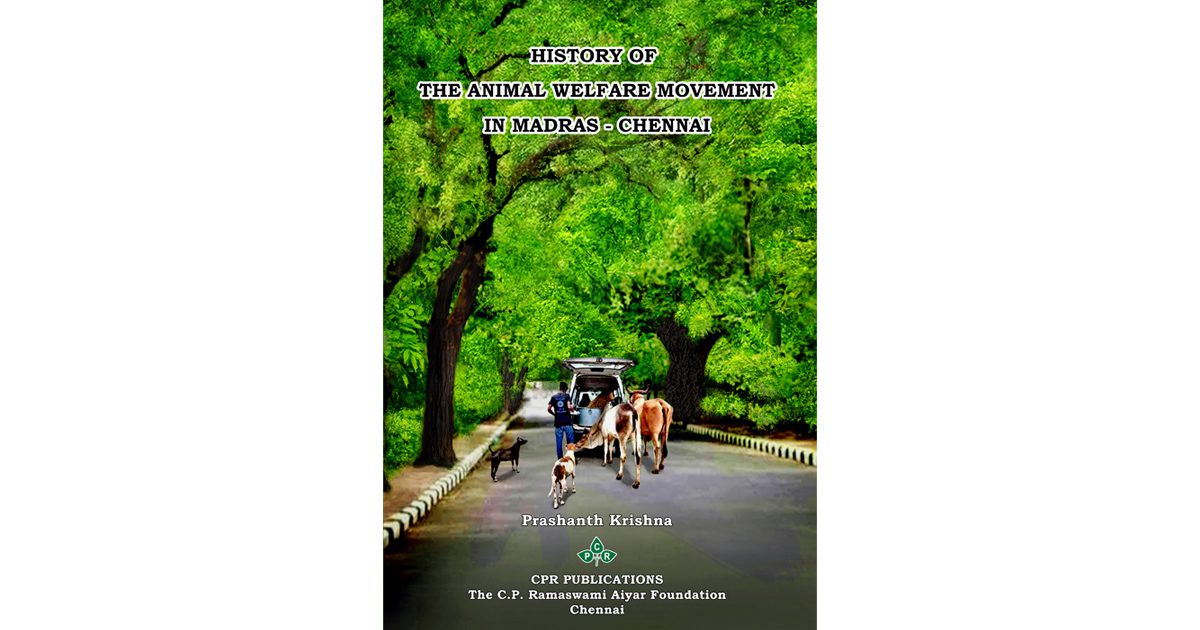
Aug 17, 2023 Book Review: History of the Animal Welfare Movement in Madras-Chennai
India probably has the most extensive laws and institutions addressing animal welfare globally. The Indian national animal welfare infrastructure likely owes its existence to ahimsa or non-violence, a doctrine addressing the treatment of other beings in the Hindu, Buddhist, and Jain religions. For example, the Yajur Veda has a line (13.47) noting that “…persons serving [animals] shall obtain heaven.” Prashanth Krishna’s book provides a historical guide documenting how this came about and identifying some of the individuals who were central figures in advocating for animal protection laws and establishing Indian animal welfare organizations.
I would note that the book’s title, focusing as it does on Madras-Chennai, is a little misleading. The volume documents the development of the Indian animal welfare movement and infrastructure. However, individuals and organizations in Madras-Chennai played an outsized role in developing Indian animal welfare infrastructure.
For example, one cannot describe the development of animal welfare in India without discussing the role of Rukmini Devi Arundale from Madras-Chennai. She was a very influential Indian artist and dance choreographer and was the first woman to be a member of the Rajya Sabha, the upper house of India’s parliament. She used her position in parliament to lobby on behalf of animal protection and was instrumental in the passage of the 1960 Prevention of Cruelty to Animals (PCA) Act. She was also a Theosophist[i] and was reportedly influenced in her thinking on animal welfare by Dr. Annie Besant, one of the founders of a flourishing Theosophy movement in India.
The 1960 PCA Act also established the Animal Welfare Board of India (AWBI) in 1962, identified in the volume as “the first of its kind in the world.” The AWBI was set up as a Statutory Advisory Body to the government of India and promote animal welfare in the country. By 2001, AWBI recommendations had led to the passage of thirteen rules supporting the implementation of the PCA Act. The text of three of these rules and the 1960 PCA Act are provided in annexes to the volume.
Globally, animal protection and animal protection legislation have expanded remarkably since 1975. India is a key geography for global animal welfare. The volume by Prashanth Krishna provides an excellent (and so far the only comprehensive) introduction to animal welfare developments in that country.
Mrs. Maneka Gandhi, an Indian MP, and a long-standing animal advocate, will release the book at an event at the C.P. Ramaswamy Foundation in Chennai on August 19, 2023. Mrs. Saraswanath Haksan, the Honorary Secretary of the Blue Cross of India, will receive the first copy. For information about the book, contact the C. P. Ramaswamy Foundation.
[i] Wikipedia described theosophy as a religion launched in the US in 1875 and drew heavily on Neoplatonism, Buddhism, and Hinduism. In India, the Theosophical Society was located in Adyar in southern Chennai. One of the founders, the Russian mystic Helena Blavatsky, insisted that theosophy was not a religion but based on essential truths underlying religion, philosophy, and science. Theosophy has been connected to various progressive causes, including feminism and animal welfare.


